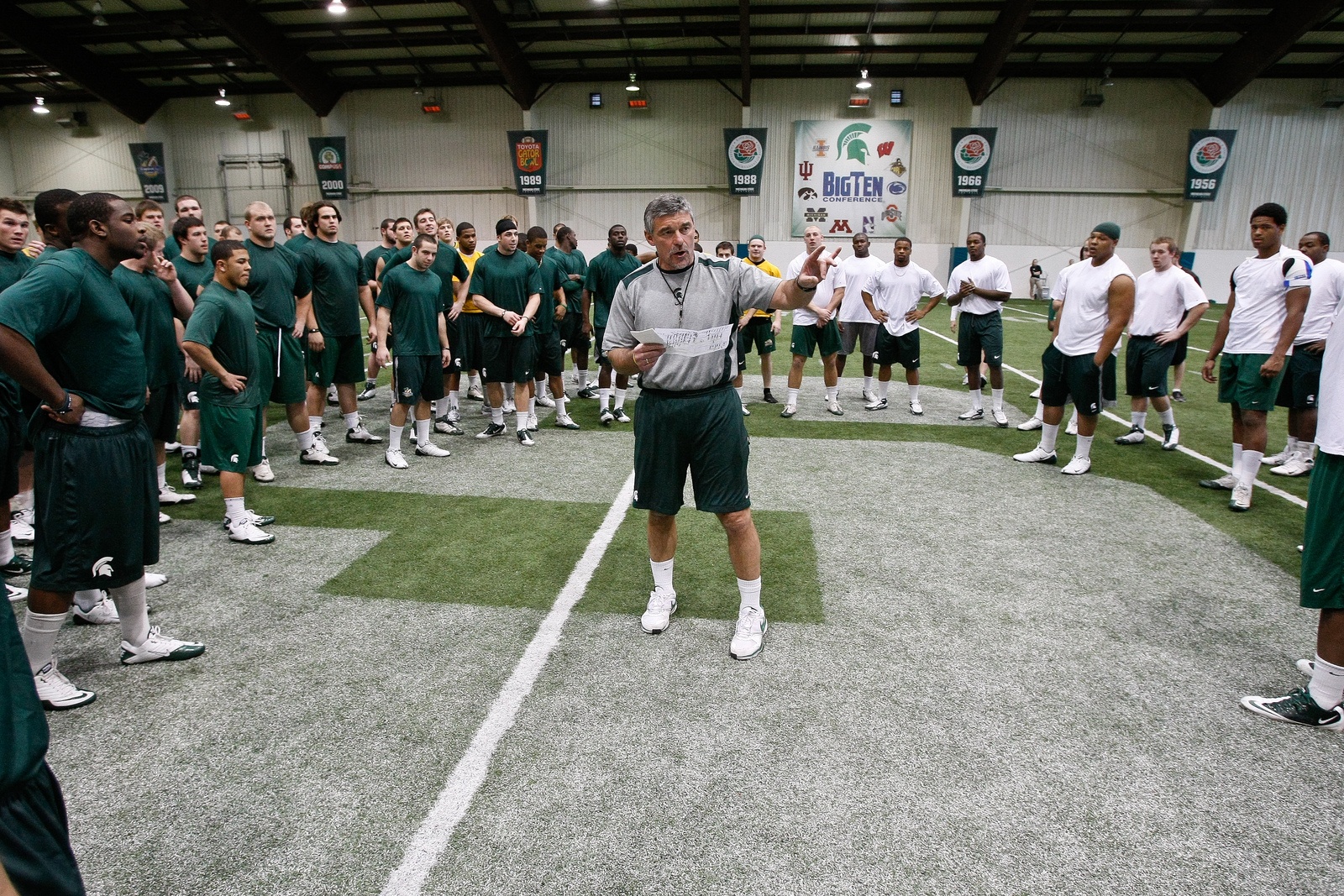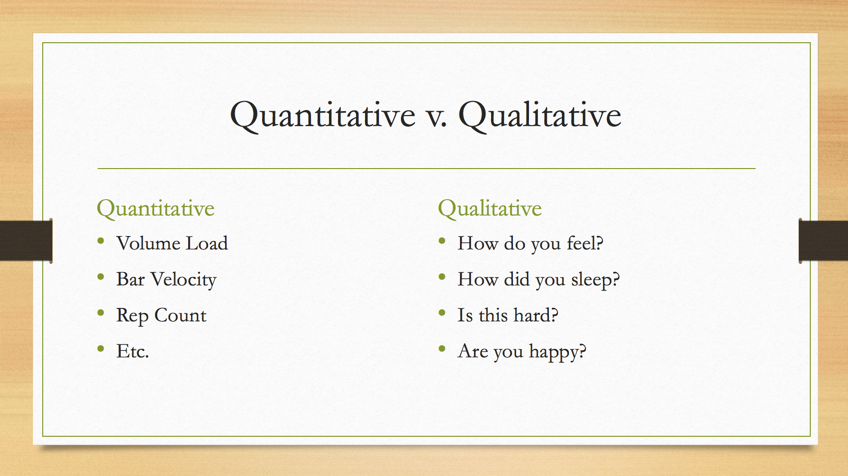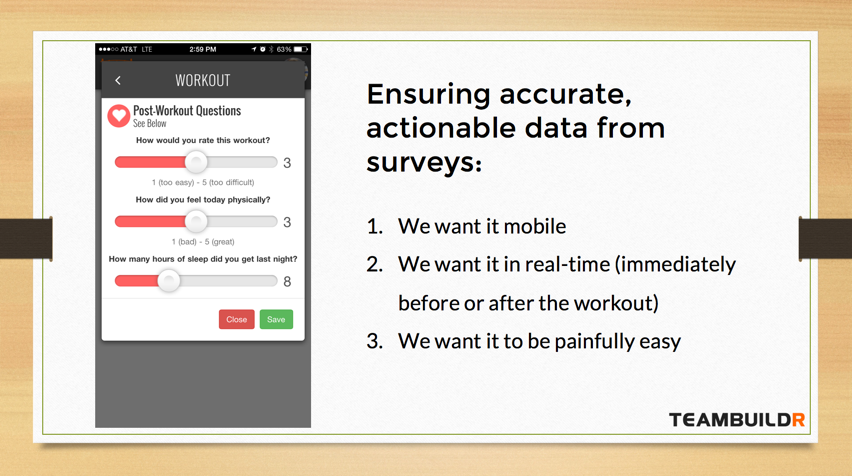This webinar was presented to a group of ~50 strength and conditioning professionals at the Hill Performance Summit hosted by Coach Dan Noble at the Hill Academy in Canada. Other presenters included Evan Winkelman, Brett Bartholomew, and Dr. Mike Young.
As we state in the presentation, we often tell coaches that we are software developers - not strength coaches (however, we have built a badass garage gym if we don't say so ourselves). Part of our philosophy in regards to getting involved in the strength and conditioning community is to share trends that observe with strength coaches based on our daily interaction with hundreds of them.
In this presentation, we talk about the qualitative strength coach and the desire to add another dimension to qualitative science and research. Qualitative research can summarized as accounting for the totality of factors in a scenario - often using lots of quantitative data. It was originally developed for studying social sciences like analyzing socio-economic forces. Today, it's applied in many fields in academia and in the private sector.
One of the most common research tools for qualitative strength coaches is the case study which is a hallmark of any MBA education. Strength coaches can think of their program as one big case study - "how many athletes, what sort of families do they come from, what are their habits, what's the common class schedule." These are qualitative factors that can be more or less quantified or assessed.
Many coaches are probably engaging in qualitative research on their program through student-athlete questionnaires or athlete surveys. However, we believe this is a component of strength and conditioning is that much more behind it's counterpart in quantitative analysis.
By using a few principles, we strongly believe strength coaches can leverage information about their teams that is not training-specific to make better decisions as coaches.
For qualitative data to be accurate, we believe it should immediate and/or timely in order to ensure the highest quality response. Necessarily, this will require that feedback be given via a mobile format - perhaps the only medium where we can encourage athletes to interact within a correct time-frame. Lastly, as makers of software systems, we believe attempts to collect qualitative data outside the weight room should be painfully easy. Athletes have the right to not be encumbered in their personal downtime.
Lastly, the qualitative strength coach is a trend that is here to stay. Already, there are many coaches that are beginning to talk more about unlocking high-performance from athletes by examining and optimizing behavior outside the weight room. As the corporate saying goes, "if you don't measure it, you can address it."
Coaches will continue to find innovative ways to monitor athlete behavior ranging from happiness to pre-workout mentality to recovery. And it they will do it cost-effectively... strength coaches always do!
Subscribe to our blog
Subscribe to receive the latest blog posts to your inbox every week.
Related posts

Why You Need to Hire an Intern (And How to Do It)

Your Team is on the Road, and You're not With Them, What Do You Do?


